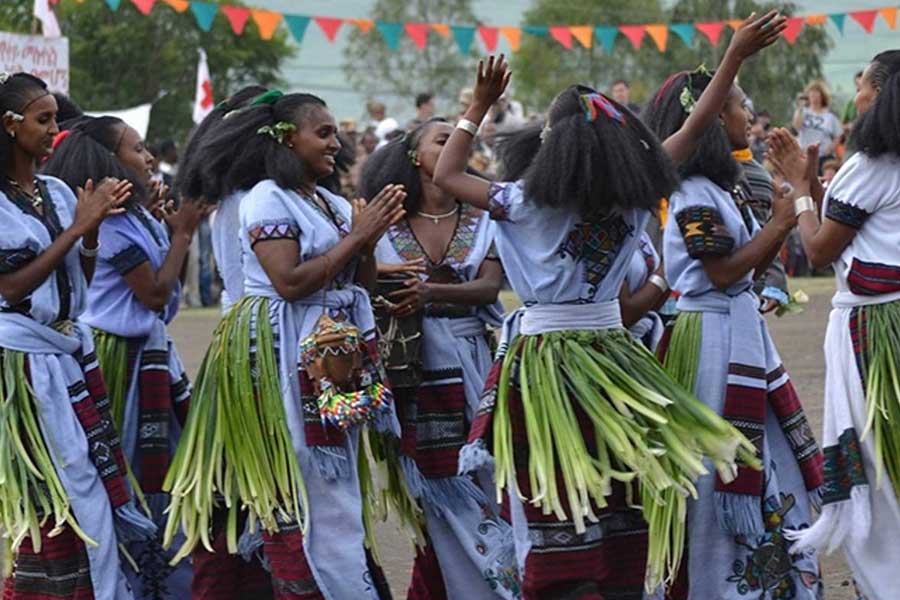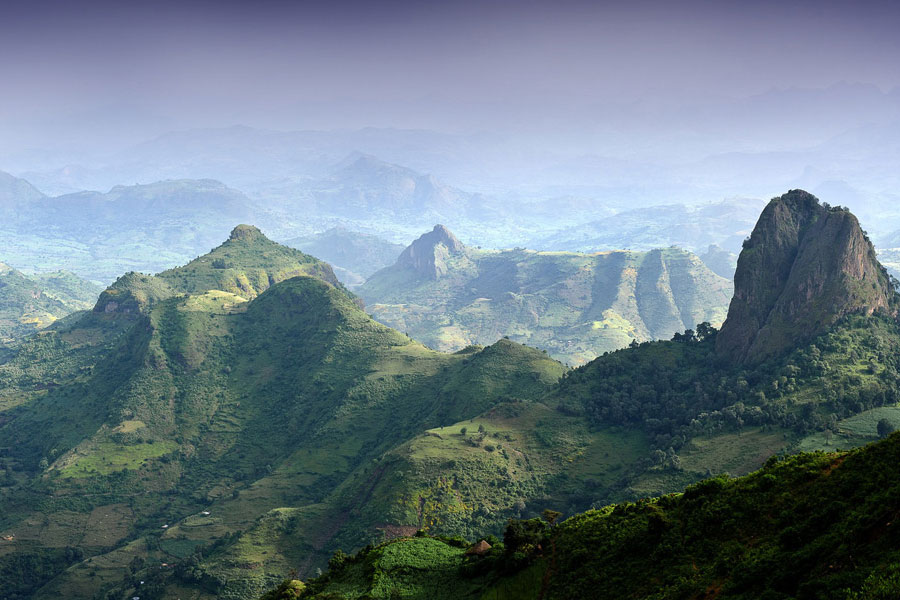
Sunday with Eden | Apr 13,2019
Nov 6 , 2021
By Christian Tesfaye
The small country of Rwanda, I found out in a recent visit, has figured out urban tourism. The main attraction of its capital, Kigali, is the Genocide Memorial, an inspiring museum than merely a sad one, and the Kigali Convention Centre, which the locals sometimes refer to as the “nipple,” given the way it protrudes from one of the city’s many hills.
But the smartest attraction is a tour of the more modest part of the city that starts with the Nyamirambo Women’s Centre. The Centre was established in 2007 to bring together women in vulnerable situations and provide them with education and employment opportunities, mainly making clothes. Their handiwork is sold under a brand called Umutima, and all proceeds go to them.
The Centre is nonetheless only part of the tour package. It all starts with a guide introducing to visitors the history of Nyamirambo, one of the oldest parts of Kigali, and the social mission behind the Centre. A small-sized printout is handed out with a translation of some of the most important words for navigating the city. Muraho means “hello,” Nitwa is “My name is …” and Muzungo means “white person.”
Then the guide starts walking tourists through Nyamirambo, a much less green and posh part of town than Kigali’s business district. The local dairy shop is visited, an important retail outlet as milk is a popular drink in the country (they say, “a Rwandan always drinks a glass of milk a day.”) Then it is to a local beauty salon, where women sit on the floor to get their hair braided and the stylist is seated on nothing more sophisticated than a couch. This sort of amateur hair salon must feel otherworldly for someone with limited exposure to the third-world.
The tour continues, showing tourists local mosques, street architecture and delicacies. It climaxes with a lunch hosted by a Rwandan family inside their living rooms. It is a modest buffet that serves as an introduction to the country’s local foods.
Such a tour sounds shallow. Can it ever compare to sightseeing the likes of Lalibela? In a way, yes. The Rwandans identified a crucial element of tourism. People do not visit other places of the world merely for the sights. They also want to see how people with a different culture, language and history behave and live – what they look like in their natural environment. For a tourist looking to get the most out of their week-long visit, a tour of urban areas with a guide in a safe environment would make them feel rewarded by the experience. They will have no problem forking over 18 dollars for the tour, as I did.
Rwanda is an example of a country that, though small, does many things well when it comes to detail. It is impressive for a sub-Saharan African country, and others should emulate its resourcefulness.
The tour, for instance, could be adapted very easily in Addis Abeba. It would not be too expensive for it to work except to make some of the historic parts of town, such as Piassa, cleaner and safer for non-nationals. A local guide for tourists of a small neighbourhood, the mom-and-pop bakeries, pubs, spice stores and lunch at the house of an Ethiopian household should be attractive enough. Throw a social mission in there – maybe a portion of the tour’s fee goes to feed the needy – then we are ready to go.
The fancy Sheratons and Hiltons and posh 2000 Habesha and Yod Abyssinia restaurants are good. But sometimes, the small things that cannot be found anywhere else are the greatest attractions, and those can be presented without much toil or cost.
PUBLISHED ON
Nov 06,2021 [ VOL
22 , NO
1123]


Sunday with Eden | Apr 13,2019

Radar | Feb 23,2019

My Opinion | Jul 08,2023

Verbatim | Jan 18,2019

Fortune News | Jan 07,2023

Fortune News | Mar 05,2022

Fortune News | Jan 29,2022

Fortune News | May 17,2025

Radar | Sep 28,2019

Radar | Mar 20,2021

My Opinion | 131584 Views | Aug 14,2021

My Opinion | 127940 Views | Aug 21,2021

My Opinion | 125915 Views | Sep 10,2021

My Opinion | 123539 Views | Aug 07,2021

Dec 22 , 2024 . By TIZITA SHEWAFERAW
Charged with transforming colossal state-owned enterprises into modern and competitiv...

Aug 18 , 2024 . By AKSAH ITALO
Although predictable Yonas Zerihun's job in the ride-hailing service is not immune to...

Jul 28 , 2024 . By TIZITA SHEWAFERAW
Unhabitual, perhaps too many, Samuel Gebreyohannes, 38, used to occasionally enjoy a couple of beers at breakfast. However, he recently swit...

Jul 13 , 2024 . By AKSAH ITALO
Investors who rely on tractors, trucks, and field vehicles for commuting, transporting commodities, and f...

Jun 28 , 2025
Meseret Damtie, the assertive auditor general, has never been shy about naming names...

Jun 21 , 2025
A well-worn adage says, “Budget is not destiny, but it is direction.” Examining t...

Jun 14 , 2025
Yet again, the Horn of Africa is bracing for trouble. A region already frayed by wars...

Jun 7 , 2025
Few promises shine brighter in Addis Abeba than the pledge of a roof for every family...

Jun 29 , 2025
Addis Abeba's first rains have coincided with a sweeping rise in private school tuition, prompting the city's education...

Jun 29 , 2025 . By BEZAWIT HULUAGER
Central Bank Governor Mamo Mihretu claimed a bold reconfiguration of monetary policy...

Jun 29 , 2025 . By BEZAWIT HULUAGER
The federal government is betting on a sweeping overhaul of the driver licensing regi...

Jun 29 , 2025 . By NAHOM AYELE
Gadaa Bank has listed 1.2 million shares on the Ethiopian Securities Exchange (ESX),...